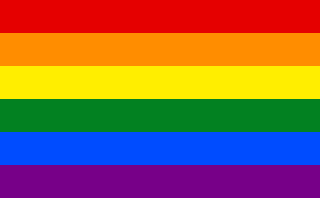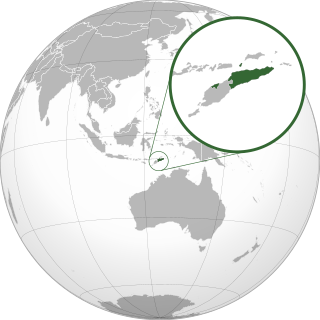Related Research Articles

A gay anthem is a popular song that has become widely popular among, or has become identified with, the gay community, although some of these songs have also become anthems for the wider LGBT community. Not all songs labelled as "gay anthems" were written intentionally to become gay anthems, but those that do are often marked by themes of perseverance, inner strength, acceptance, pride, and unity. Research in 2007 suggested that the song most commonly identified as a gay anthem is "I Will Survive" by Gloria Gaynor, and described the song as "a classic emblem of gay culture in the post-Stonewall and AIDS eras".

Matt Walsh is an American right-wing political commentator and author. He is the host of The Matt Walsh Show podcast and is a columnist for The Daily Wire. He has authored four books and starred in The Daily Wire online documentary film What Is a Woman?
Adam Yosef is a British journalist, photojournalist and political activist.

A pride flag is any flag that represents a segment or part of the LGBT community. Pride in this case refers to the notion of LGBT pride. The terms LGBT flag and queer flag are often used interchangeably.

Lesbian, gay, bisexual, and transgender (LGBT) persons in Turkey face legal challenges not experienced by non-LGBT residents. Anti-LGBT rhetoric is a common part of political speeches of Turkey president Recep Tayyip Erdogan.

The rainbow flag, also known as the gay pride flag or simply pride flag, is a symbol of lesbian, gay, bisexual, and transgender (LGBT) pride and LGBT social movements. The colors reflect the diversity of the LGBT community and the spectrum of human sexuality and gender. Using a rainbow flag as a symbol of gay pride began in San Francisco, California, but eventually became common at LGBT rights events worldwide.

Lesbian, gay, bisexual and transgender (LGBT) people in Qatar face legal challenges not experienced by non-LGBT residents. Sexual acts of male homosexuality are illegal in Qatar, with a punishment for all convicts of up to three years in prison and a fine, and for Muslims duly convicted in a court under sharia law the possibility of a judicially sanctioned capital punishment for homosexuality; however, there are no known cases where the death penalty was judicially enforced for homosexuality, though extra-judicial murders of LGBT people are unverified.

LGBT pride is the promotion of the self-affirmation, dignity, equality, and increased visibility of lesbian, gay, bisexual, and transgender (LGBT) people as a social group. Pride, as opposed to shame and social stigma, is the predominant outlook that bolsters most LGBT rights movements. Pride has lent its name to LGBT-themed organizations, institutes, foundations, book titles, periodicals, a cable TV channel, and the Pride Library.

Lesbian, gay, bisexual, and transgender (LGBT) people in East Timor face legal challenges not experienced by non-LGBT residents. Both male and female same-sex sexual activity are legal in East Timor, but same-sex couples and households headed by same-sex couples are not eligible for the same legal protections available to opposite-sex married couples.

New York City has been described as the gay capital of the world and the central node of the LGBTQ+ sociopolitical ecosystem, and is home to one of the world's largest LGBTQ populations and the most prominent. Brian Silverman, the author of Frommer's New York City from $90 a Day, wrote the city has "one of the world's largest, loudest, and most powerful LGBT communities", and "Gay and lesbian culture is as much a part of New York's basic identity as yellow cabs, high-rise buildings, and Broadway theatre". LGBT travel guide Queer in the World states, "The fabulosity of Gay New York is unrivaled on Earth, and queer culture seeps into every corner of its five boroughs". LGBT advocate and entertainer Madonna stated metaphorically, "Anyways, not only is New York City the best place in the world because of the queer people here. Let me tell you something, if you can make it here, then you must be queer."

Rainbow capitalism is the involvement of capitalism and consumerism in the LGBT movement. It developed in the 20th and 21st centuries as the LGBT community became more accepted in society and developed sufficient purchasing power, known as pink money. Early rainbow capitalism was limited to gay bars and gay bathhouses, though it expanded to most industries by the early-21st century.

Abby Chava Stein is an American transgender author, activist, blogger, model, speaker, and rabbi. She is the first openly transgender woman raised in a Hasidic community, and is a direct descendant of Hasidic Judaism's founder, the Baal Shem Tov. In 2015, she founded the first support group nationwide for trans people with an Orthodox Jewish background.
Monica Katrice Roberts was an African-American blogger, writer, and transgender rights advocate. She was the founding editor of TransGriot, a blog focusing on issues pertaining to trans women, particularly African-American and other women of color. Roberts' coverage of transgender homicide victims in the United States is credited for bringing national attention to the issue.

The social policy of the Donald Trump administration was characterized as socially conservative.
Samantha Leigh Allen is an American journalist and author. Allen worked as a senior reporter for The Daily Beast and now works as a freelance journalist. In 2019 she published the nonfiction book Real Queer America: LGBT Stories From Red States.
The Disney Channel, which launched in 1983, Disney XD, which began in 2009, Disney Junior, which launched in 2011, and shows on Disney+, along with the short-lived Toon Disney, have all occasionally featured lesbian, gay, bisexual, and transgender (LGBT) characters in their programming.
Since the early 2020s, members of the far-right and a growing number of mainstream conservatives, mostly in the United States, have falsely accused LGBT people, as well as their allies and progressives in general, of systematically using LGBT sex education and campaigns for LGBT rights as a method of child grooming and enabling pedophilia. These accusations and conspiracy theories are characterized by experts as baseless, homophobic and transphobic, and as examples of moral panic.

LGBT Pride Month is a month, typically June, dedicated to celebration and commemoration of lesbian, gay, bisexual, and transgender (LGBT) pride. Pride Month began after the Stonewall riots, a series of gay liberation protests in 1969, and has since spread outside of the United States. Modern-day Pride Month both honors the movement for LGBT rights and celebrates LGBT culture.
References
- 1 2 3 Brammer, John Paul (July 5, 2018). "After Pride Comes Wrath Month — Here's How to Celebrate". Them.us . Archived from the original on July 5, 2022. Retrieved July 6, 2022.
- ↑ Jackman, Josh (July 2, 2018). "July has a brilliant new LGBT name, according to this viral meme". PinkNews . Archived from the original on July 5, 2022. Retrieved July 6, 2022.
- 1 2 3 4 Lenton, Patrick (July 10, 2018). "Junk Explained: What is LGBTIQ Wrath Month And Why Are We So Angry?". Junkee . Archived from the original on July 5, 2022. Retrieved July 6, 2022.
- ↑ Dockray, Heather (July 6, 2018). "Pride may be over, but here's how to celebrate LGBTQ Wrath month". Mashable . Archived from the original on July 5, 2022. Retrieved July 6, 2022.
- 1 2 Oliveira, Anthony (July 4, 2018). "Pride Month is over. Welcome to LGBTQ Wrath Month". The Washington Post . Archived from the original on November 29, 2021. Retrieved July 6, 2022.
- ↑ Hinzmann, Dennis (July 2, 2018). "With Pride Month Over, The Internet Suggests We Move On To Wrath Month". Out.com . Archived from the original on July 5, 2022. Retrieved July 6, 2022.
- ↑ Rook, Erin (July 3, 2022). "This Week on LGBTQ Twitter: Prepare for Queer Wrath Month". LGBTQ Nation . Archived from the original on July 6, 2022. Retrieved July 6, 2022.
- ↑ Smith, Alissa (June 30, 2020). "Opinion: This is why we called June "Wrath Month"". Colorado Springs Indy . Archived from the original on July 5, 2022. Retrieved July 6, 2022.
- ↑ Allen, Samantha; Rodriguez, Mathew; Burke, Sarah; Sanders, Wren; López, Cáne; Mhloyi, Catherine; Factora, James; Riedel, Samantha; Trykowski, Tyler (July 1, 2022). "Now That Pride Is Over, Welcome to LGBTQ+ Wrath Month". Them.us . Archived from the original on July 5, 2022. Retrieved July 6, 2022.